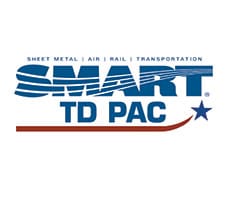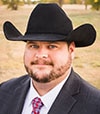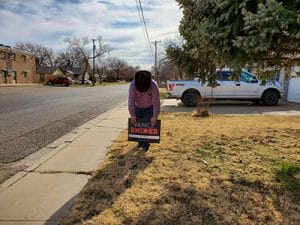Working on the railroad is a very accurate metaphor for life. Nothing is predictable; everything is earned rather than given. When something breaks down, it’s on each of us to fix it by ourselves, no matter what.
The way we feel walking a train in the middle of nowhere at 3 a.m., two miles from the head end, armed with nothing but a lantern, is similar to the way we feel when we realize that our streak broke in the hotel. We aren’t going to be off for the 48 hours we thought we were. Those plans we had with our family are in jeopardy — we won’t get to our kid’s concert or wrestling match like we promised without a miracle.
We feel alone.
In these moments, we need to remember that we are not alone. Much like a wrestler standing on the mat facing down an opponent, we might be by ourselves, but we have a team supporting us. Railroaders are alone on the job, but we are alone together. This is the foundation of our union.
When you walk that train in the 3 a.m. darkness, your lantern is with you. You can use your lantern to get the information you need to do your job well, like to see car numbers in the pitch-black darkness or shed light on a mechanical issue. It is invaluable in keeping you safe by lighting the way when you are trying not to step in the wrong place and fall down an embankment into an icy creek. Sometimes, your lantern proves to be a serviceable tool when you have a stuck handbrake on an auto rack and you need to extend your reach. When it really hits the fan, that lantern is the only weapon you have to fight off coyotes or transients.
SMART-TD is also with you to light your path, extend your reach, and help ward off harm. Carry your union, and your union will carry you. Our union provides educational tools through regional training and SMART University. The support staff provides the information we need to be successful in our railroad careers. Our local chairs are there with us during investigations, ensuring we don’t say the wrong thing and go sliding down the ballast into that icy creek of discipline points and lost wages.
When there is a problem with local managers, our general committees and chairs extend our reach. They smack down contract violations or unfair disciplinary actions, just like our lanterns smack that stuck brake in just the right spot to let the slack come out of the chain.
When the railroads send their lawyers and lobbyists to claw back our benefits or jeopardize our careers, the international becomes that lantern we swing and hit them right between the eyes.
Much like our lanterns, this union cannot run without energy. Our lanterns are at their best when we are vigilant about making sure the battery is charged. It’s no help if, in the darkness, you don’t hit that button to turn it on. SMART-TD is ready to be of service. If we don’t turn it on, don’t know how it can be used, or forget to bring it with us, it won’t do any good. With the “walking conditions” we are all faced with right now, our lantern is more important to us than ever.
We all get busy and sometimes forget to keep our lanterns charged. I haven’t been to as many local meetings as I should have. I haven’t reread my contract for way too long. That’s on me. The union has always been there for me when I needed it, and I’m going to do the same for SMART-TD.
If you’ve been distant and haven’t checked in lately, please reengage and start coming to local meetings. Get comfortable knowing the ins and outs of our agreement, so these railroads can’t take advantage of us or our families. Find a SMART-TD Regional Training Seminar to attend that sharpens your skills and adds a few watts to that lantern in your hand. Get the energy flowing and report when things concerning safety or technology aren’t right and file claims if management is abusing your time.
As far as keeping the battery charged, now is a great time to consider becoming a contributor to SMART-TD’s Political Action Committee. If you think the progress we’ve made in 2PC and elsewhere isn’t a direct result of the efforts by SMART-TD’s state and national legislative efforts funded by PAC, you are lying to yourself. But just like your lantern after a 12-hour shift, SMART-TD PAC’s battery is running low after this fight.
So please take a few minutes to jump on the SMART app or talk to your local officers to get signed up for PAC. We all know the railroads well enough to say that the 2PC fight isn’t over. They always have another trick up their sleeve. For now, the train is back together, and the air is getting to the rear, but we’re all qualified on this territory. We know the recrew hasn’t been ordered. We know we’re going to have to put this pig away when we get it to the other end. It’s time to break out that extra battery for that lantern because there is still work to be done.


